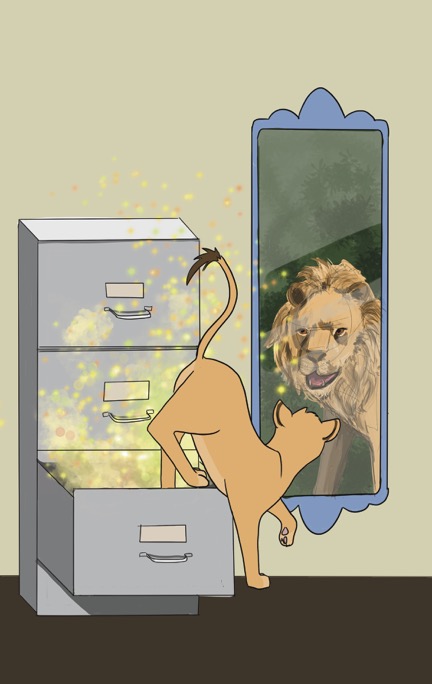It’s 2032. Live action remakes permeate all 17 of the major streaming services. Disney has run out of animations to redo, and the first of the animated remakes of live action films are starting to pepper the “recently added” category. You’ve got time to kill, piping hot popcorn ready at your side, but you can’t bring yourself to pick a movie. You’ve seen these stories a dozen times. You turn off the TV.
In 2024, we haven’t reached that point yet, but there’s no doubt that live action remakes are having a moment, whether we viewers like it or not. They appeal to nostalgia, cajoling older viewers who grew up ‘water bending’ in the swimming pool and singing along with Ariel to step back into their light-up sneakers and take a trip down memory lane.
Live action remakes are a perfect example of a pull from the archives, and they beg the question of when drawing from the past goes too far. All stories have some form of intertextuality, whether it be allusions, borrowed story structure or a reimagining of an old classic. But live action remakes are none of these. They pull from the archives, and, rather than offering anything new, regurgitate classics through a soulless CGI filter. They lack core essences of what made the first version great: originality and animation.
Part of the reason why studios insist on remaking old films is because those old films are popular. They did something new in the world of cinema and captured viewers’ attention and hearts for decades. These original stories have a type of magic and wonder about them. Simply remaking these films is not enough to capture this magic because the newness and originality is gone.
In terms of animation, “The Lion King” provides a perfect example of how live action remakes fall flat. Due to its dedication to realism, the 2019 version of “The Lion King” cannot take the same liberties with feline facial expressions that the animated version could. The character and spunk of the original is lost in translation. Without the quirky and expressive characters that made the original so impactful, the live action version becomes a dry husk, reminiscent of the past, but lacking vibrancy and movement.
This flatness is not unique to live action animals. The 2024 remake of “Avatar: The Last Airbender” also loses the stylistic animations that made the original series stand out, whether it be elemental bending, characters’ expressions or magical creatures.
Animation has so much to give, but is often looked down upon in the United States. Anything in this style is seen as a “cartoon” or a “kid’s show,” and adults turn up their noses. Live action remakes serve to fuel this perception. They attempt to improve classic films with the use of live actors and CGI, therefore allowing adult viewers to finally take the story seriously.
This desperation to “adultify” animated shows (even though many “kid’s shows” deal with intense topics that can entertain adults and get them thinking) has wider implications as well. It runs the risk of alienating kids from live action remakes by making them extra gritty.
For example, Albert Kim, the showrunner of “The Last Airbender,” spoke about trying to balance two audiences: kids and adults. He acknowledged that the original show dealt with mature themes, but still viewed it as solely a kid’s show. With the live action, he tried to bring in a new audience.
“We had to make it a serialized Netflix drama, which meant it couldn’t just be for kids. It had to also appeal to the people who are big fans of ‘Game of Thrones’,” Kim said.
Yes, the original show is a kid’s show, but it’s not just for kids. As someone who never watched “The Last Airbender” growing up, but rather got into it when it was released on Netflix during the COVID-19 pandemic, I can attest to its ability to engage adults. This experience is not unique to me; many adults dove into the world of the Avatar for the first time when it was released on Netflix. At first, this may have been an attempt to escape the reality of COVID, but, for many adult viewers, discovering shows like “The Last Airbender” is more than escape. For example, as I watched, I empathized with characters, got sucked into the world and its complexity and reflected on themes such as family, honor and duty. I don’t need to watch the live action version of the show to feel things, think about deeper topics or enjoy the show. Failing to accept that kid’s shows can appeal to adults without being remade and forced into a box of what an adult show “should” be is a disservice to the original show. These show and movies can speak to multiple audiences while remaining true to their heart.
Not only are live action remakes condescending to the original in their efforts to appeal to adults, they are also soulless cash grabs. This is a shame, considering the fact that Disney has enough success to be bold, take risks and create. In fact, in 2023, Disney’s profits hit $3.3 billion dollars. With its staggering revenue, Disney could push the boundaries with animation and invest in new stories that will become classics in the future. Instead, Disney’s making a live action version of “Moana,” which will hit theaters in 2026, a measly 10 years after the original animated film.
“Moana” barely had time to breathe before getting turned into a live action film. It’s hard to understand why Disney would make a live action version so fresh off of the original, until one considers the cash that the movie will rake in. Live action remakes are unoriginal ploys for massive profit, sucking the soul and heart out of original stories in the process.
Disney has extensive archives that have propelled the company into its global success today. Its insistence on pumping out live action remake after live action remake is an abuse of these archives; not only do live action remakes fail to add anything, they go so far as to detract from the original. They cannot live up to the movies that they are re-imagining because they are lacking originality and the benefits of animation.
Live action remakes do not inspire me to pick up a bowl of popcorn and press play. They make me want to turn and run the other way, chasing after original narratives that push the boundaries of cinema and storytelling. There is value in acknowledging the archives, in drawing from them, referencing them and adding to them. In fact, this is an integral part of storytelling. But live action remakes are decidedly not this. They take the joy out of movies, replacing it with greed and CGI, leaving viewers frustrated, confused and empty.





